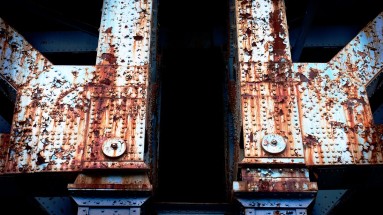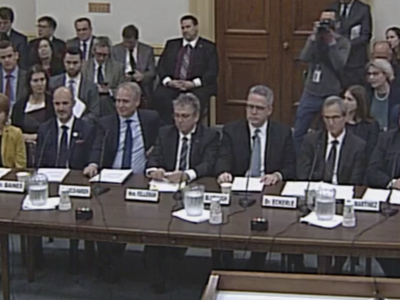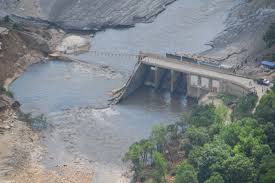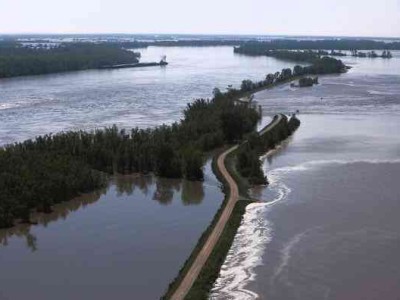infrastructure
Biden and the Environment: The First 100 Days
Biden has set up a lot of future actions. But he’s already got some notches on his belt.
Tomorrow marks Biden’s first 100 days in office. He’s appointed a great climate team and is negotiating an infrastructure bill that focuses on climate change. With luck, those actions will produce major environmental gains down the road. There are also some solid gains in the form of actions that have already come to fruition. Here’s …
Continue reading “Biden and the Environment: The First 100 Days”
CONTINUE READINGTrump’s Latest Deregulatory Ploy: Emergency Waivers
Shaky legal authority, poor analysis, dubious benefits. What else is new?
In an Executive Order issued last Thursday, Trump told agencies to use emergency waivers to avoid environmental safeguards. The order is legally shaky and unlikely to accomplish much. Still, it provided a nice photo op. Maybe he should have signed it in front of a church. I’ll talk later about the specifics, but first I’d …
Continue reading “Trump’s Latest Deregulatory Ploy: Emergency Waivers”
CONTINUE READINGNEPA, emergencies and executive power
Once more we need to ask, can Trump do what he claims to be doing?
Late Thursday, the White House issued another in a seemingly endless series of administrative orders. Under the typically overblown title “EO on Accelerating the Nation’s Economic Recovery from the COVID-19 Emergency by Expediting Infrastructure Investments and Other Activities,” it was touted by the President’s team as a way to speed infrastructure permitting and another step …
Continue reading “NEPA, emergencies and executive power”
CONTINUE READINGDeferred Planetary Maintenance
It’s easy to put off long-term problems when there’s a crisis. Much too easy, actually.
Long-term problems get short shrift in a crisis. That’s true of infrastructure repair; it’s also true of climate change. Like deferred maintenance, climate change just gets bigger the longer it’s put off. I often see the fruits of deferred maintenance on the Berkeley campus. Building conditions are a huge problem at Berkeley. Whenever there’s a …
Continue reading “Deferred Planetary Maintenance”
CONTINUE READINGHow Can We Achieve a Carbon-Neutral Transportation Sector by 2050?
Developments from a hearing before the House Subcommittee on Environment and Climate Change
Today, the Subcommittee on Environment and Climate Change of the House Committee on Energy and Commerce held a hearing entitled “Building a 100 Percent Clean Economy: Solutions For Planes, Trains and Everything Beyond Automobiles.” As the title suggests, the Subcommittee’s hearing sought to probe opportunities to decarbonize the transportation sector while focusing on modes of …
Continue reading “How Can We Achieve a Carbon-Neutral Transportation Sector by 2050?”
CONTINUE READINGAging Dams, Forgotten Perils
You’ve heard it before but it’s still true: U.S. infrastructure is a mess.
Stop me if you’ve heard this one before: Critical U.S. infrastructure is dilapidated and unsafe. Regulation is week, and enforcement is weaker. Everyone agrees on the need for action, and climate change will only make the problem worse. but no one seems to do anything about it. Sadly, this has become a familiar story. Take …
Continue reading “Aging Dams, Forgotten Perils”
CONTINUE READINGScenarios
We live in an uncertain world. Scenario planning can help.
When Shell Oil produced a sophisticated scenario of the path to a carbon neutral world in 2070, a lot people took notice. Shell concluded that the “relevant transformations in the energy and natural systems require concurrent climate policy action and the deployment of disruptive new technologies at mass scale within government policy environments that strongly …
CONTINUE READINGFlood Safety, Infrastructure, and the Feds
Standards for levees, seawalls, and other infrastructure urgently need attention.
The federal government is responsible for responding to major floods and runs the federal flood insurance program. It also has millions of dollars of its own infrastructure at risk from floods. Yet the government is failing to deal effectively with flood risks before the fact. Let’s begin with the levees that are the main defense …
Continue reading “Flood Safety, Infrastructure, and the Feds”
CONTINUE READINGSmall Hands/Small Infrastructure
It’s not really an infrastructure plan. It’s a plan for toll road and local tax hikes.
The initial response to Trump’s infrastructure plan has been justifiably critical. Jennifer Rubin, my favorite conservative columnist, says the plan doesn’t pass the straight-face test. A good deal of it is designed to encourage privatization of infrastructure or to eliminate environmental safeguards for new projects. I want to focus on a different aspect of the …
Continue reading “Small Hands/Small Infrastructure”
CONTINUE READINGMajor Challenges Face the National Park Service in Its Next Century
Park Overcrowding, Crumbling Infrastructure, Changing Constituency Top the List
(This is the third in a series of posts this week commemorating the 100th anniversary of the creation of the National Park Service.) To be sure, the National Park Service has much to celebrate as it observes its 100th birthday. The Park Service oversees a stunning and diverse set of national parks, monuments, historic and …
Continue reading “Major Challenges Face the National Park Service in Its Next Century”
CONTINUE READING











